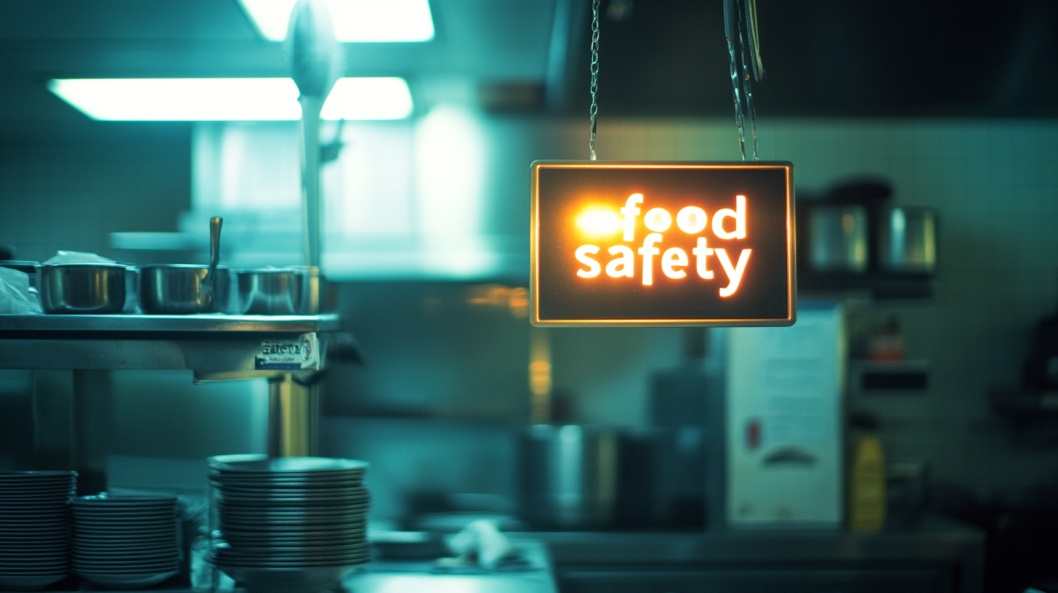In an industry where the margin for error is razor-thin, ensuring the safety of the food served is essential not just for compliance but for sustaining trust and delivering exceptional dining experiences. Food safety is critical in the hospitality industry, particularly within the UK’s restaurant and café culture. Beyond being a legal obligation, food safety is essential to maintaining the integrity of the business, protecting public health, and cultivating a reputation for excellence.
Food safety experts highlight the importance of strict food safety practices within the restaurant and café industry. They emphasise that safeguarding public health, fostering customer trust, upholding high hygiene standards, and ensuring the long-term success of food establishments all depend on effective food safety measures. Understanding and learning compliance regulations is crucial for achieving these goals, as it ensures that businesses meet the legal standards required to protect public health. Knowledge of these regulations helps establishments avoid legal penalties and maintain a trustworthy operation. This blog post will explore why adhering to food safety protocols is vital and how it impacts various aspects of the food service industry.
1. Protecting Public Health
The primary reason for implementing food safety protocols is to protect public health. Restaurants and cafes handle large volumes of food daily, making them a potential vector for foodborne illnesses if proper hygiene and safety standards are not followed. Pathogens like Salmonella, E. coli, and Listeria can lead to severe health issues, including food poisoning and gastrointestinal infections. By adhering to strict food safety practices, establishments can minimise the risk of these contaminants, ensuring that their customers are not exposed to harmful bacteria or viruses.
2. Maintaining High Standards of Hygiene
Food safety protocols encompass a range of practices, including proper food storage, handling, and preparation. These guidelines are designed to maintain high hygiene standards throughout the food preparation. For example, regular handwashing, proper sanitation of kitchen surfaces, and correct temperature control for cooking and refrigeration are all vital components. Implementing these practices helps prevent cross-contamination and the spread of germs, ensuring that every meal is safe and high-quality.
3. Building Customer Trust
Trust is a cornerstone of customer loyalty in the restaurant and café industry. Diners expect their food to be prepared with the highest safety standards. Restaurants and cafes consistently adhere to food safety protocols, demonstrating their commitment to quality and customer well-being. This not only helps in building a positive reputation but also fosters customer loyalty and repeat business. A single instance of foodborne illness can significantly damage an establishment’s reputation, making adherence to safety protocols crucial.
4. Ensuring Legal Compliance
In the UK, food safety regulations are enforced by local authorities, and non-compliance can lead to severe consequences. The Food Safety Act 1990 and the Food Hygiene (England) Regulations 2013 set out the legal requirements for food safety in food establishments. Compliance with these regulations is not optional but a legal obligation. Food safety officers’ regular inspections ensure that establishments follow the required protocols. Failure to comply can result in fines, legal action, and even the closure of the business.
5. Preventing Financial Loss
Neglecting food safety can lead to significant financial repercussions for restaurants and cafes. Beyond the costs associated with fines and legal action, establishments may face expenses related to cleaning, re-training staff, and compensating affected customers. Additionally, a food safety incident can lead to a decline in patronage, negatively impacting revenue and profitability. By investing in food safety protocols, businesses can avoid these financial pitfalls and maintain a successful operation.
6. Enhancing Operational Efficiency
Effective food safety protocols are not just about preventing illness—they also contribute to smoother and more efficient operations. Proper food handling, storage, and preparation guidelines help streamline processes, reduce waste, and improve kitchen management. This efficiency enhances the quality of food, optimises resource use, and reduces costs associated with spoilage and errors.
7. Promoting a Culture of Safety
Implementing food safety protocols fosters a culture of safety within an establishment. When staff are trained and aware of the importance of food safety, they are more likely to adopt best practices and contribute to a safe working environment. This culture of safety extends beyond individual practices and influences the overall operational ethos, creating a more conscientious and professional workplace.
From my perspective, the true value of food safety protocols, including health and safety in a restaurant, extends far beyond legal compliance; it is a testament to an establishment’s commitment to excellence and customer care. In the UK dining industry’s competitive landscape, prioritising food safety protects public health and fortifies a restaurant or café’s reputation and operational success. Investing in rigorous food safety practices is not merely about meeting regulatory requirements—it’s about setting a standard for quality and reliability that resonates with customers and ensures the business’s long-term prosperity.





